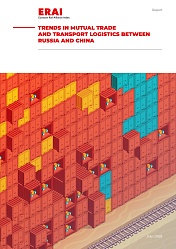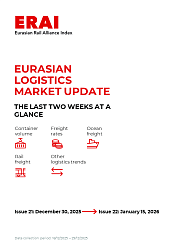Thanks!
We will contact you.



Under the new conditions, China has become a key strategic partner and the main «window» for Russian foreign trade turnover

The last two weeks at a glance